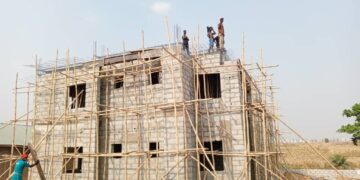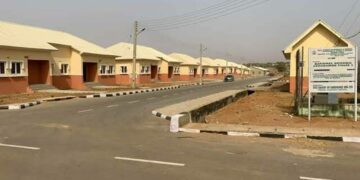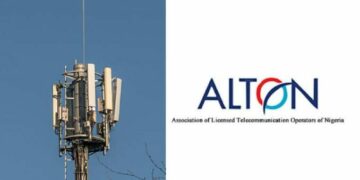Nigeria is currently backward in economic growth, declining in job creation and thin in investment climate. It’s 33.3 per cent general unemployment rate, 42.5 per cent youth employment and 17.71 per cent inflation figure, and 13 per cent interest rate all combine to speak volume of an economy in dare need of survival for recovery and growth.
Most economic experts agree that if Nigerians make the right choices, within this decade, especially in the coming general elections, Nigeria could become a leading industrialising and reforming nation in Africa that focuses on building its State capacity and capabilities.
Those who belong to that league believe the country will break free from decades-long political, policy, legislative, and regulatory constraints; create an enabling investment climate and business environment underpinned by a motivated, capacitated, well-resourced, world-class civil service that drives open, transparent, high-performance governance.
But apart from those that will take the mantle of leadership – either as elected or appointed officials – the judiciary is expected to effectively uphold the rule of law and our Legislative houses will enact laws that benefit the people of Nigeria and elevate our country.
For chairman of the Nigerian Economic Summit Group (NESG) Mr Asue Ighodalo, the country will move decisively towards structural and institutional reforms required to unlock local content development, sub-national economic diversification, competitiveness and growth.
Like Ighodalo, many believe that with the right policies in place and a level playing field, Nigeria will make substantial progress in poverty reduction and job creation in the medium term. Apart from the economy and security, the nation’s health facilities will improve, and we will drastically reduce the number of out of school children. “We will live safely within our borders in good harmony,” Ighodalo at a recent stakeholders forum to release a six point agenda for political candidates in Abuja.
The current administration launched a national economic plan that was tagged: Economic Recovery and Growth Plan (ERGP) which has a shadow and insignificant implementation by the Zainab Ahmed-led Ministry of Finance, Budget and National Planning. It has not made impressive impact in the economy. It has particularly failed to engender an inclusive economic growth, reduce unemployment and prove on human capacity development. It’s seeming failure is blamed on poor implementation by the drivers of the economy, especially the fiscal arm of the government.
In a document that was published at the national economic dialogue on “Critical Challenges Confronting the Nigerian Economy”, the NESG and other stakeholders want the incoming public office holders to lead the country to: rethink what socio-economic development outcome means for an average Nigerian; deepen sectoral reforms to support broad-based growth and competitiveness; and pragmatic and actionable social sector reforms.
Other points are for the potential office holders to: rethink the role of market and the private sector; integrated national and sub-national approach to economic inclusion and development; and develop workable and inclusive national security strategy in all dimensions.
Like other speakers at the event, Ighodalo said the process by which each party will select their candidates during their primaries and the characteristics and capacity of the persons selected is of critical and defining importance.
Speaking at the dialogue session which took place in Abuja yesterday, Ighodalo said Nigerians “must insist that as our politicians begin to set or reshape their plan on the way forward, they will be mindful of the various negative socio-economic indicators and not lose sight or focus to finding a path to transformational progress.”
Lastly, Nigeria’s weak economic competitiveness remains a crucial concern for investors. Businesses in Nigeria face obstacles that threaten their survival and expansion.
Panelists and the congregation at the programme point to a whole lot of issues around right leadership selection for Nigeria, energy prices and what Nigeria needs to do now to avoid doom days, addressing soft issues like poverty, unemployment and lack of economic inclusivity that combine to make issues difficult for the economy and Nigerians.
The NESG also tasked the Nigerian government to address, with utmost urgency, six critical challenges causing economic dysfunction.
The group highlighted the challenges to include, non-inclusive economic growth, macroeconomic instability, infrastructure deficit, human capital deficit and skills gap, national insecurity, and weak economic competitiveness.
Nigeria is at a significant crossroad. The country is at a critical state s is where it needs political leaders to emerge who think globally and act locally to tackle seemingly intractable development problems.
emergence of such enlightened leadership—credible, competent, courageous reform-minded, and able to rebuild the institutions of governance—is what Nigerians desperately need now.
The NESG chairman believes that if Nigerians make the right choices, within this decade, Nigeria can become a leading industrialising and reforming nation in Africa that focuses on building its state capacity and capabilities. “The country will break free from decades-long political, policy, legislative, and regulatory constraints; We will create an enabling investment climate and business environment underpinned by a motivated, capacitated, well-resourced, world-class civil service that drives open, transparent, high-performance governance,” he stated.
Those who spoke during a panel discussion include Prof Osita Ogbu who said Nigeria needs to get serious about education. “You can’t say students should not pay, and then, you cannot pay,” he said.
Stating that every federal minister requires a certain intellectual capacity to function as a member of the federal executive cabinet, Ogbu also said inflation might get worse because the nation is going into an election period. The inflation is already being pressured by insecurity and war in Ukraine. Prof Ogbu said the Central Bank of Nigeria must wear its cap and relate with the fiscal authorities to target inflation, adding that Nigeria must match huge domestic demand with productivity.
Country director, CARE International Nigeria, Hussaini Abdu could not agree less when he said the Nigerian educational sector should be overhauled to ensure it is tailored after the technology driven globalisation in a way that graduands from the nation’s schools are able to become innovative and dump the idea of job seeking.
National insecurity is at the heart of recent socio-economic issues in Nigeria. If unchecked, the recurrence of community and personal insecurity would continue to threaten macroeconomic stability in Nigeria. The supply chain is seriously affected by the high insecurity across the country.
As candidates of the various political parties square up to struggle for power and influence, eyes are on those that will take office in 2023 to restructure and refocus the economy for recovery and growth.





